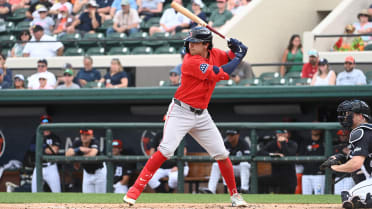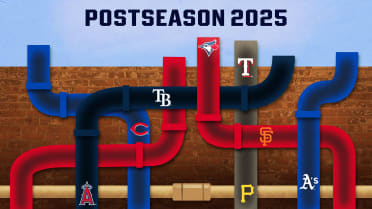'This is not OK': Twins searching for answers
MINNEAPOLIS -- Josh Donaldson didn’t sugarcoat things over the weekend.
“Quite frankly, we’re not very good right now,” Donaldson said on Saturday. “I mean, that’s just plain and simple.”
That was before the Twins finally showed encouraging signs of life in two games against the A’s, with clutch homers from Miguel Sanó and Andrelton Simmons. That newfound life was nowhere to be seen on Monday, when the Twins resoundingly crashed back to earth in a 16-4 drubbing at the hands of the American League Central-leading White Sox at Target Field.
By the fifth inning, every White Sox hitter had reached base, Nick Madrigal was a triple shy of the cycle, and seven of the nine Chicago starters had scored a run. By the eighth inning, Twins fans in the left-field bleachers were raucously cheering for starting White Sox left fielder Leury García’s every move.
“We never want to normalize what we’re seeing right now,” manager Rocco Baldelli said. “This is not OK. We all have to know that, acknowledge that, own it and do what we need to do going forward to make sure that this doesn’t persist, because it was hard. I mean, that was a hard game to get through.”
Newcomer and emergency starting center fielder Rob Refsnyder collected his first career four-hit game and Donaldson crushed a two-run homer off the facing of the upper deck in center field, but otherwise, in all phases of the game, a Twins team desperately in search of answers found none as it opened a critical three-game series against the team once seen as its primary rivals for the division title.
After consecutive tough losses, both Taylor Rogers and Nelson Cruz pointed to the need for the players to take away some positives and move forward, even from games like Minnesota’s self-induced 7-6 loss to Oakland on Sunday and Monday’s blowout.
But that’s not getting any easier.
“It’s a lot easier and a lot more enjoyable to point to the positives when you’re playing good baseball,” Baldelli said. “I mean, that’s what we’re here to do. No one here is going to be happy pointing to the positives if we’re not playing good baseball.”
Entering the season, this isn’t the situation -- or the score -- that the Twins had in mind for their first game at Target Field against their division rivals.
The Twins fell to 13-26, only three games better than their worst start through 39 games in club history. Instead of a battle in a home debut against the White Sox in what they hoped would be a season-long and bitter war for the AL Central, Minnesota finds itself looking up an 11 1/2-game mountain at Chicago.
“We didn't see ourselves starting the season this way,” Cruz said. “Unfortunately, that's the way we've been playing. It's just ... we weren't expecting this.”
The Twins are banged-up, exacerbated even more by catcher Mitch Garver exiting after three innings with a bruised right knee after taking a foul tip in the first inning -- but so are the White Sox, who played without Eloy Jiménez, Luis Robert and José Abreu on Monday.
It’s not exactly that the Twins have a noticeably worse roster or have struggled to make hard contact throughout the year, as they remain first in MLB in hard-hit rate and second in average exit velocity.
“It seems like every day, it's something different,” Cruz said. “We battle. We get good at-bats. That's the tough part. We have to come up with the wins. That's how you measure teams. Wins and losses.”
But whether it’s been struggles with situational hitting or costly errors, the Twins have found themselves asking -- and answering -- the same questions over and over again throughout the last few weeks, to the point where starter J.A. Happ was at a true loss for words when asked again about the clubhouse’s demeanor after Monday’s game.
There are still 123 games left in the season, but already, the Twins are finding themselves having to reckon with questions -- roster-wise, coaching-wise, development-wise -- that none of them would have anticipated entering the season.
“I'd say at this point in the year, by now, we've explored, talked about, dug into much of what we would consider important and what we think we could do to help turn things around,” Baldelli said. “Are there still avenues to go down? Absolutely. And we have to take the time to do that.”
Do-Hyoung Park covers the Twins for MLB.com.




